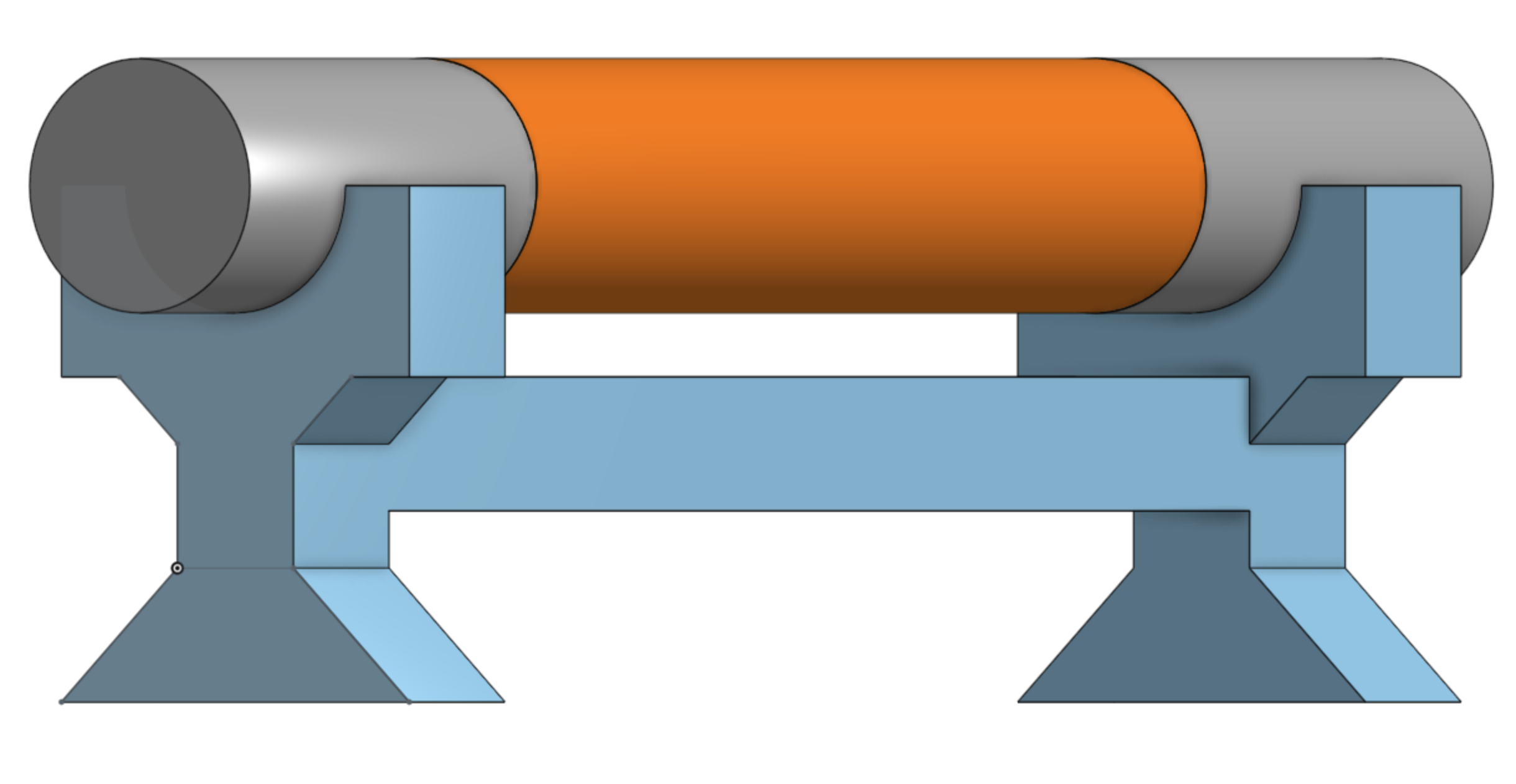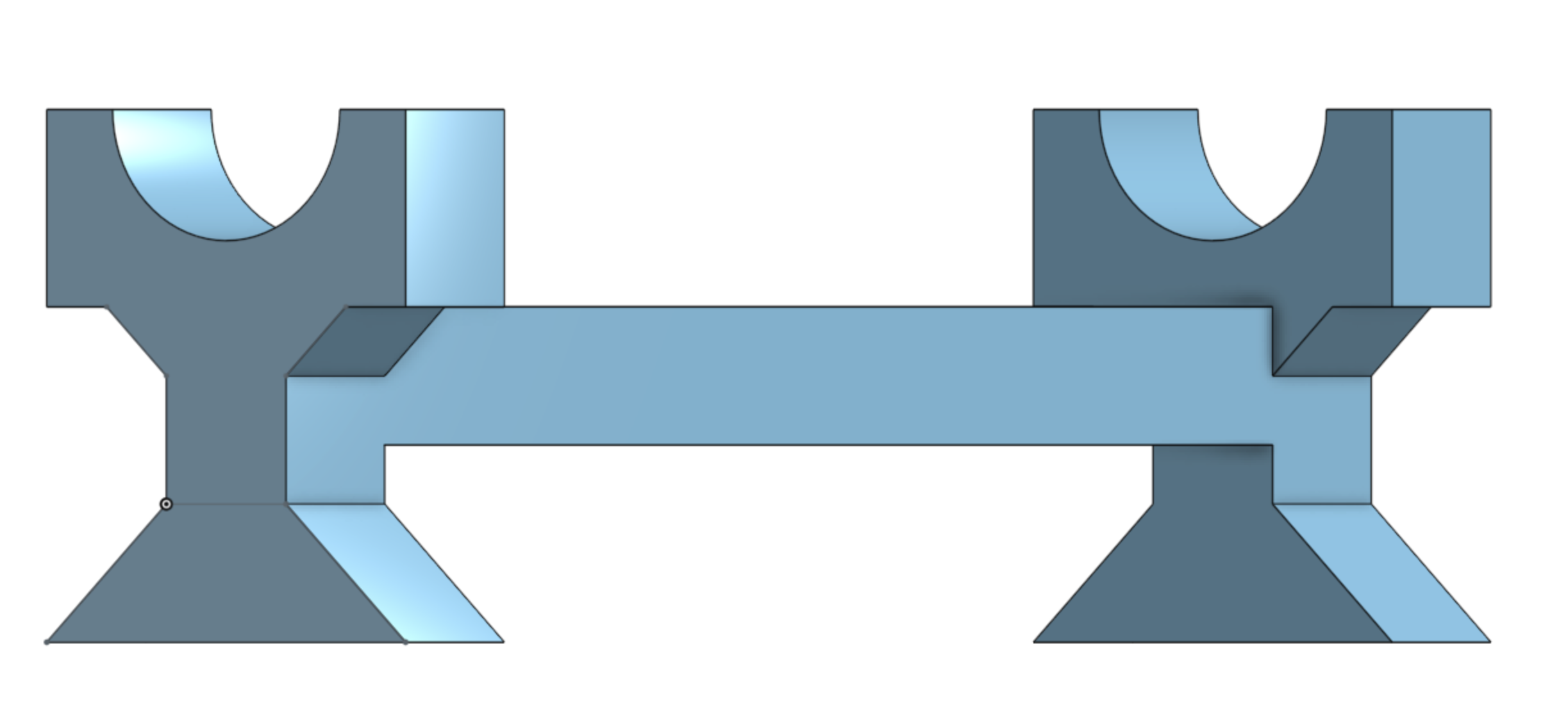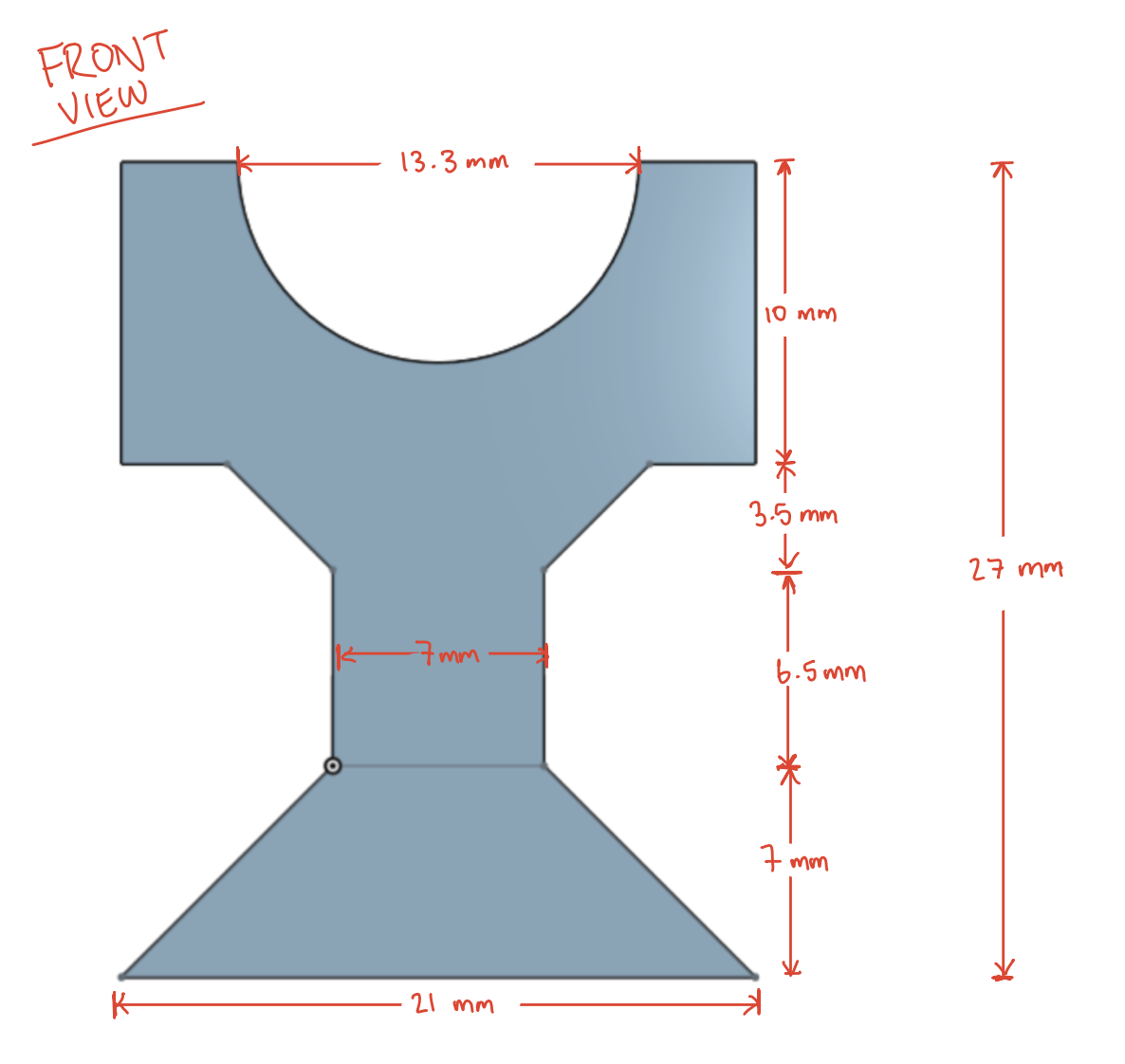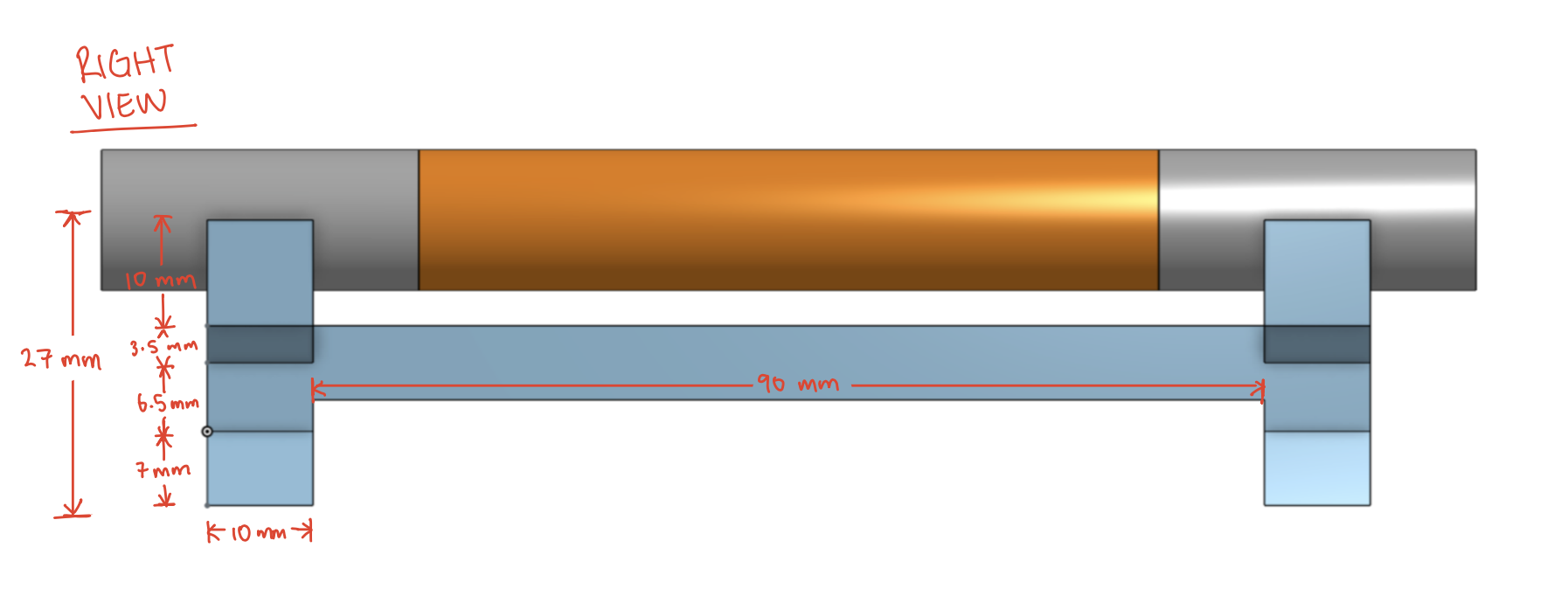UW Orbital is a student-led design team at the University of Waterloo partipicating in the Canadian Satellite Design Challenge. Our primary payload is a “Selfie-Sat” camera which can take a picture at a given set of coordinates.
As an Altitude Determination and Control Systems (ADCS) subteam member, my role is to apply a collaborative and iterative design approach to develop lightweight and cost-effective orientation controls for the satellite.
I primarily work on magnetic torquers which provide useful torque for the satellite by creating a magnetic dipole that interacts with Earth’s magnetic field.

Blue = magnetic torquer stainless steel core
Orange = magnetic torquer stainless steel core
| Section | Dimension |
|---|---|
| a | 30 mm |
| b | 70 mm |
| D | 12.7 mm |
| L | 130 mm |
Click below to access the model file!


| Problem | Solution |
|---|---|
| 3D printing tolerance may affect dimensional accuracy of part. | Circular cutouts of arms enlarged (13.3 mm vs 12.7 mm) to ensure magnetic torquer fits. |
| Metal magnetic torquer may not be supported by plastic structure. | For added stability, arms are joined by long piece and bases are widened. |


